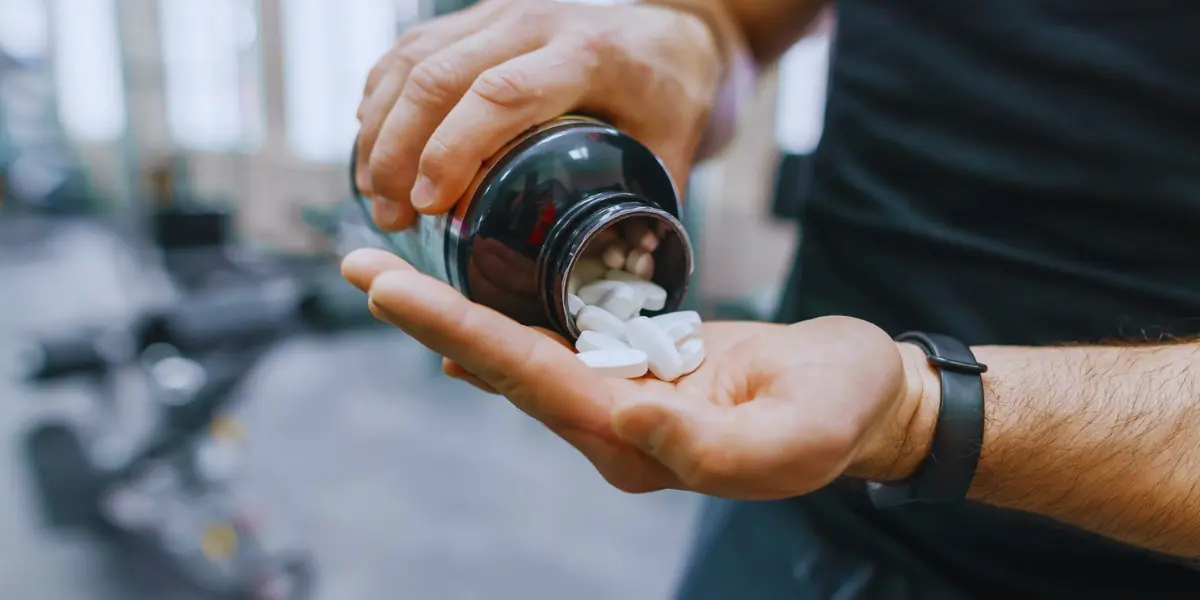Testosterone is an essential hormone for men. It impacts various aspects of health. It is crucial for muscle strength, bone density, mood regulation, and sexual function. Unfortunately, many men experience a decline in testosterone levels, which are caused by various factors. These factors include aging, certain habits, diseases, and so on. However, there are some natural ways to fix low testosterone levels. This article will explore simple and practical strategies to boost your testosterone naturally. This article aims to present information in an accessible and straightforward manner, focusing on lifestyle changes, dietary adjustments, and other natural methods.
What Is Testosterone? How can I Raise My Testosterone Fast?
Testosterone is the primary male sex hormone. It is important for numerous bodily functions. It is responsible for developing male tissues like the testes and prostate and secondary sexual characteristics such as increased muscle mass, body hair, and deeper voice. The normal testosterone levels are critical to a person’s overall health. However, when they drop significantly, the individual starts experiencing symptoms such as fatigue, mood disturbances, loss of muscle mass, and lower libido. It is necessary to know the symptoms of low testosterone to act quickly. Balancing testosterone levels for overall physical, mental, and emotional health is indispensable.

Who Is Affected By Low Testosterone?
Anyone from a baby to an adult can suffer from Low Testosterone (male hypogonadism). Low testosterone is more likely to affect people who:
- Are older
- Are Obese
- Have type 2 diabetes
- Have sleep apnea
- Have chronic diseases like kidney or liver problems
- Have HIV/AIDS
How Common Is Low Testosterone?
It is hard to know precisely. However, about 2% of people assigned male at birth may have it. More than 8% of men between 50 and 79 years old might have it.
Lifestyle Changes To Boost Testosterone Diet
- Balanced Diet: Add a mix of proteins, fats, and carbohydrates to your meal for a balanced diet. Balanced meals can positively affect hormone levels.
- Vitamin D: The most natural way of increasing vitamin D levels is through regular exposure to sunlight. 15 to 25 minutes of daily sun exposure, especially in the warm season, can be beneficial.
- Zinc: This mineral is a key component for boosting testosterone. Zinc-rich foods include oysters, red meat, turkey, beans, nuts, and whole grains. Even a slight deficiency of zinc can cause low testosterone levels.
- Magnesium: Magnesium is involved in more than 3oo biochemical reactions in the body, including testosterone regulation. Good sources of magnesium include leafy green vegetables, nuts, seeds, and whole grains.
Exercise
- Weight Training: Regular lifting can significantly boost testosterone levels.
- HIIT Workouts: High-intensity interval training is effective for hormone production.
- Quality Sleep: Try to sleep for 7-9 hours each night. Inadequate sleep can significantly lower testosterone levels.
Stress Management
Stress can cause a decrease in testosterone levels. Yoga, deep breathing, and meditation can reduce stress and aid hormonal balance.
Natural Supplements
In addition to lifestyle modifications, certain supplements can help in fixing testosterone levels:
- Vitamin D3: It is advantageous during winter or for those with minimal sun exposure.
- Omega-3 Fatty Acids: it is found in fish oil and can help in hormone production.

Herbal Supplements
- Ashwagandha: an adaptogen that has been shown to increase testosterone levels.
- Fenugreek: Traditionally used to boost libido and testosterone levels.
Medical Approaches
Consulting a healthcare provider is vital when considering options to fix testosterone. They can offer:
- Blood Tests: Essential for accurate testosterone level measurement.
- Personalized Recommendations: They can recommend personalized treatment based on your health history.
- Monitoring: Ongoing check-u to track progress and adjust strategies as required.
Avoiding Harmful Habits
Certain habits and environmental factors can adversely affect testosterone levels:
- Limit Alcohol and Tobacco Use: Both substances can lead to lower testosterone.
- Steer Clear Of Endocrine Disruptors: These are often found in plastics and personal care products.
- Maintain a Healthy Weight: Excess body weight can negatively impact hormone balance.
Boosting testosterone levels naturally involves a comprehensive approach. It includes lifestyle and dietary changes and possibly the use of supplements. It’s about adopting a healthier overall lifestyle that shorts hormonal balance. While results may not be immediate, ongoing and consistent efforts will certainly bring positive results. One should consult with the healthcare provider before making significant lifestyle changes or starting on any new supplements. One can fix testosterone levels with the correct approaches, leading to better health and overall well-being.